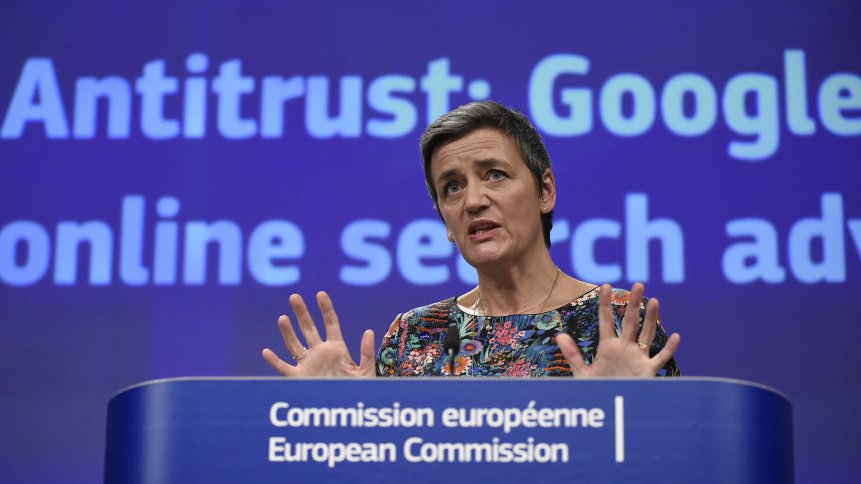Britain on Thursday launched a second regulatory investigation into US tech giant Google’s dominance in online advertising technology, also known as ad tech.
The Competition and Markets Authority (CMA) watchdog said in a statement that it will examine the group’s services that facilitate the sale of online advertising space between publishers and advertisers.
The CMA will look at three key parts of Google’s complex set of services known as advertising technology intermediation or the ad tech stack, and in each of which the US giant is a dominant player.
The tech titan has “strong positions” at various levels of the ad tech stack and charges fees to both publishers and advertisers, according to the CMA.
“We’re worried that Google may be using its position in ad tech to favor its own services to the detriment of its rivals, of its customers and ultimately of consumers,” added CMA chief executive Andrea Coscelli in the statement. “This would be bad for the millions of people who enjoy access to a wealth of free information online every day.”
The news comes just two months after both the European Union and Britain opened antitrust probes into a deal between Google and Facebook owner Meta that was allegedly aimed at cementing their dominance over online advertising.
The so-called “Jedi Blue” 2018 agreement has also faced lawsuits in the United States as global regulators seek to curb the power of big tech. Back in March, the European Commission said it was investigating the 2018 agreement that has also faced lawsuits in the United States as global regulators increase the pressure on their campaign to seriously limit the power of the so-called ‘Big Tech’ juggernauts. The EU said its probe would explore whether the arrangement between the internet behemoths had been used to “restrict and distort competition in the already concentrated ad tech market”.
The bloc’s competition supremo, Margrethe Vestager, said that if confirmed, the arrangement will have served to distort competition, squeezing rival ad tech companies, publishers “and ultimately consumers.”
At the same time as the EU probe in March, the UK’s Competition Market Authority also launched its own investigation into the agreement and the two watchdogs will “closely cooperate” on the investigation, the EU said. Chief Executive Andrea Coscelli said the CMA “will not shy away from scrutinizing the behavior of big tech firms […] working closely with global regulators to get the best outcomes possible.”
US court documents revealed that the top bosses of Google and Facebook were directly involved in approving the allegedly illegal 2018 deal. The legal documents filed in a New York court clearly refer to Sundar Pichai, chief of Google’s parent firm Alphabet, as well as Facebook executive Sheryl Sandberg and CEO Mark Zuckerberg — even if their names were redacted.
Google has further enraged publishers and online ad rivals with its plan to overhaul its ad tracking system on its world-leading Chrome browser and Android smartphone operating system. The internet giant made the move — which does away with personal online trackers that are known as “cookies” — to answer increasing pressure to better guarantee privacy for web users.
Critics see it as a way for Google to deny publishers and advertisers precious data and embolden the company’s dominance in advertising. The search giant’s parent Alphabet Inc pulled in over US$60 billion in the fourth quarter of 2021 just in ad revenue, which makes up over 80% of its income. Meta booked US$33.6 billion in sales in the same period, mostly from advertising.
With reporting from © Agence France-Presse











